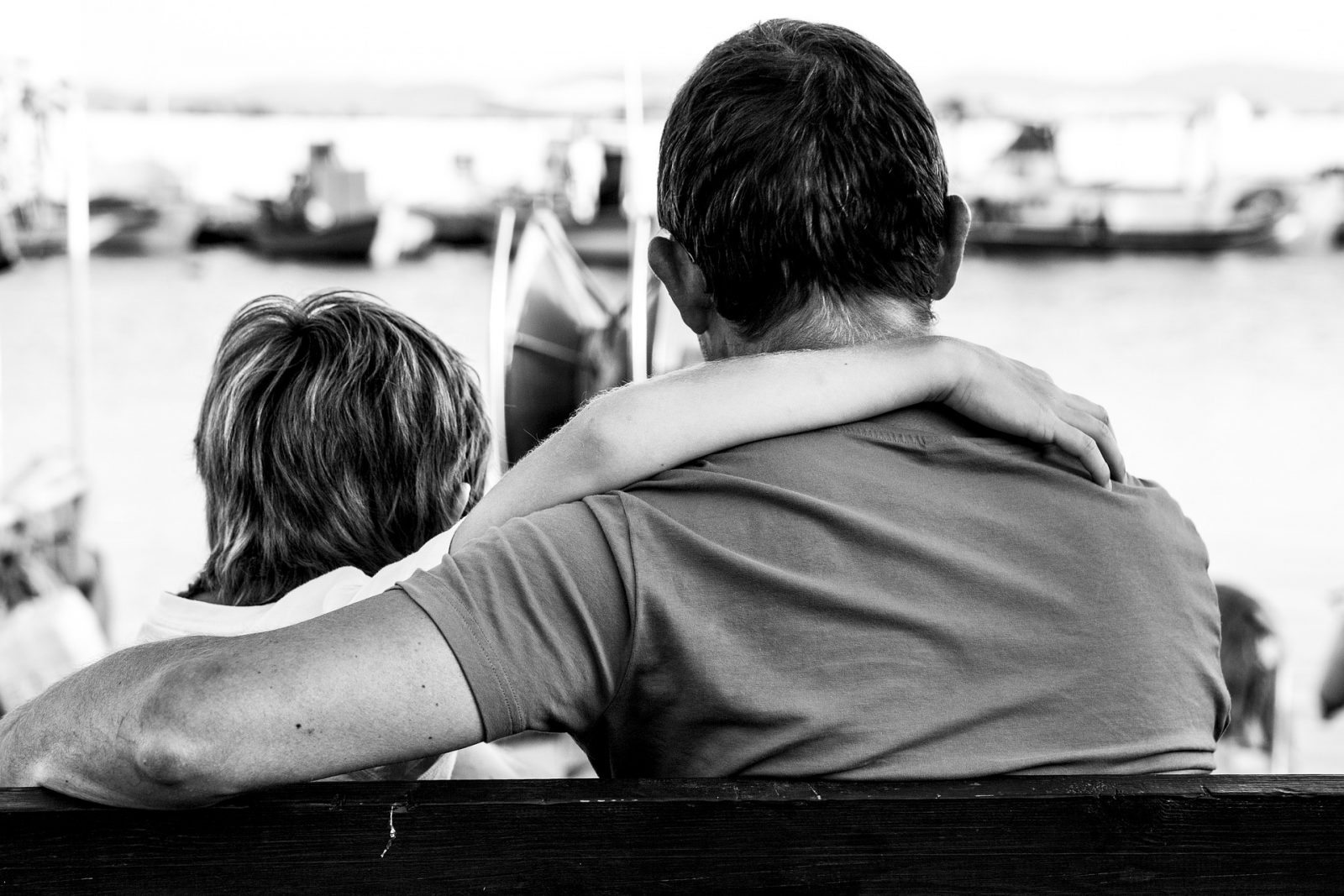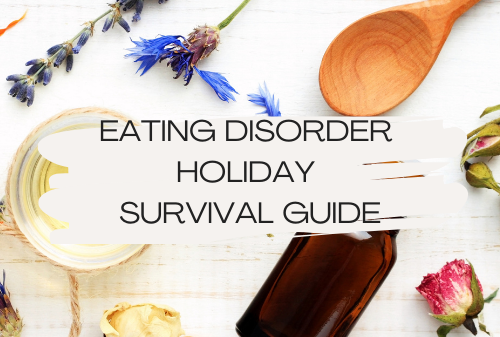EATING DISORDER HOLIDAY SURVIVAL GUIDE
Battling an eating disorder during the holidays makes recovery extra challenging. Thanksgiving and other holidays revolve around food which can be a major trigger if you’re in recovery.
Here’s the thing: you can set yourself up for success at the holidays by following this guide. YOU decide where you give your energy and attention this holiday season. Research tells us that where you give your energy and time, you will feel in abundance. Here are five eating disorder holiday tips to maintain your recovery.
1) START YOUR DAY STRONG
Your morning routine the day of a holiday is crucial! First, you 100% have control over your morning routine. I suggest starting your day with a short meditation on body image or body nourishment. Mentally rehearse the holiday using these meditations so you’re not winging it!
Meditating first thing in the morning is shown to improve depression and anxiety. This is when your mind is the MOST clear and the stress of the day hasn’t yet crept in.
If meditating isn’t your jam, then write 10 gratitudes. Make these SMALL things, so your brain is primed to look for what’s going RIGHT later on instead of what’s going WRONG.

2) HAVE IMPORTANT CONVERSATIONS BEFORE GOING
Before you show up for the holiday gathering, call your loved ones or whomever you’ll be spending the day with. Tell them what’s okay to talk about and what you’d prefer they don’t talk about. If you’re eating with family and want them to know the DOs and DONTs of how to support you, please have them read this.
Set boundaries if you need to. Tell them what time you’ll be arriving and leaving so as not to surprise them. Share that you might get up during the meal to go take some deep breaths. Have whatever conversations you can have in advance. This way, you’ve said everything that needs to be said before every getting there.
3) HAVE A SNACK BEFORE GOING
You do not want to show up to Thanksgiving or any other holiday gathering hungry! Yes I know you might be eating in 30 minutes or an hour, but still eat a snack in advance of going.
I also suggest taking five deep breaths in and out through your nose before walking inside. This allows you to ground and center before walking in.
4) SET AN INTENTION
Of all the eating disorder holiday tips, this is my favorite and most powerful. To minimize anxiety, choose an intention for the day. Decide where to put your focus. For example, on one Thanksgiving, my sister had just given birth to a baby boy a couple months ago. I asked her if I could take care of him during the day – feed him, change him and hold him. Giving my energy to something outside of myself was magical.
Whether your intention is to connect with a specific person or be helpful, knowing your intention is KEY.
Finally, have a plan for when Thanksgiving is ‘over’. This is absolutely crucial to surviving holidays with an eating disorder. Ask a friend if you can stay overnight or invite a family member to go on a walk or play a game with you. Have hot tea or plan to take a bath. Whatever it is, write out a PLAN for what happens when the meal is over. This is when ED thoughts are the loudest. You will (hopefully) be full after meal time (if you anticipate this, you might read: 3 Tips to Sitting With Fullness) and it’s important not to leave plans up to chance.
I hope these five eating disorder holiday tips give some hope for Thanksgiving and beyond. Come up with a game plan before the holidays, before a triggering event or a particular day you have anxiety over. Planning for it – before it starts and after it is over – can provide certainty, clarity and lead to not only surviving holidays with an eating disorder, but also enjoying the holidays.




